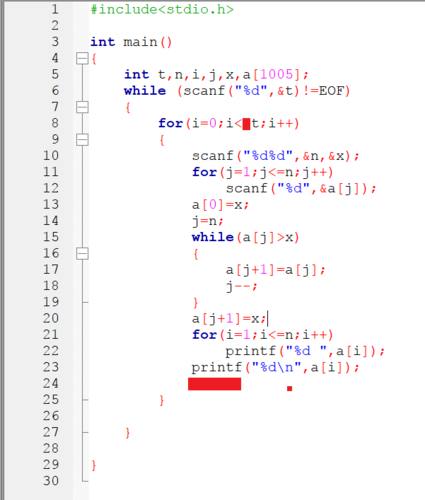在C语言中,统计空格数可以通过遍历字符串并检查每个字符是否为空格来实现,以下是一个简单的示例,展示了如何在C语言中统计空格数:

(图片来源网络,侵删)
1、我们需要包含头文件stdio.h,以便使用输入输出函数。
#include <stdio.h>
2、接下来,我们定义一个名为count_spaces的函数,该函数接受一个字符串作为参数,并返回字符串中的空格数。
int count_spaces(const char *str) {
int count = 0;
for (int i = 0; str[i] != '0'; i++) {
if (str[i] == ' ') {
count++;
}
}
return count;
}
3、在main函数中,我们从用户那里获取一个字符串,并调用count_spaces函数来计算空格数,我们将结果打印到屏幕上。
int main() {
char input[100];
printf("请输入一个字符串:");
fgets(input, sizeof(input), stdin); // 从用户那里获取字符串
int spaces = count_spaces(input); // 计算空格数
printf("字符串中的空格数为:%d
", spaces); // 打印结果
return 0;
}
4、我们需要将上述代码片段组合在一起,并在程序的开头声明count_spaces函数,完整的程序如下:
#include <stdio.h>
#include <string.h>
int count_spaces(const char *str) {
int count = 0;
for (int i = 0; str[i] != '

